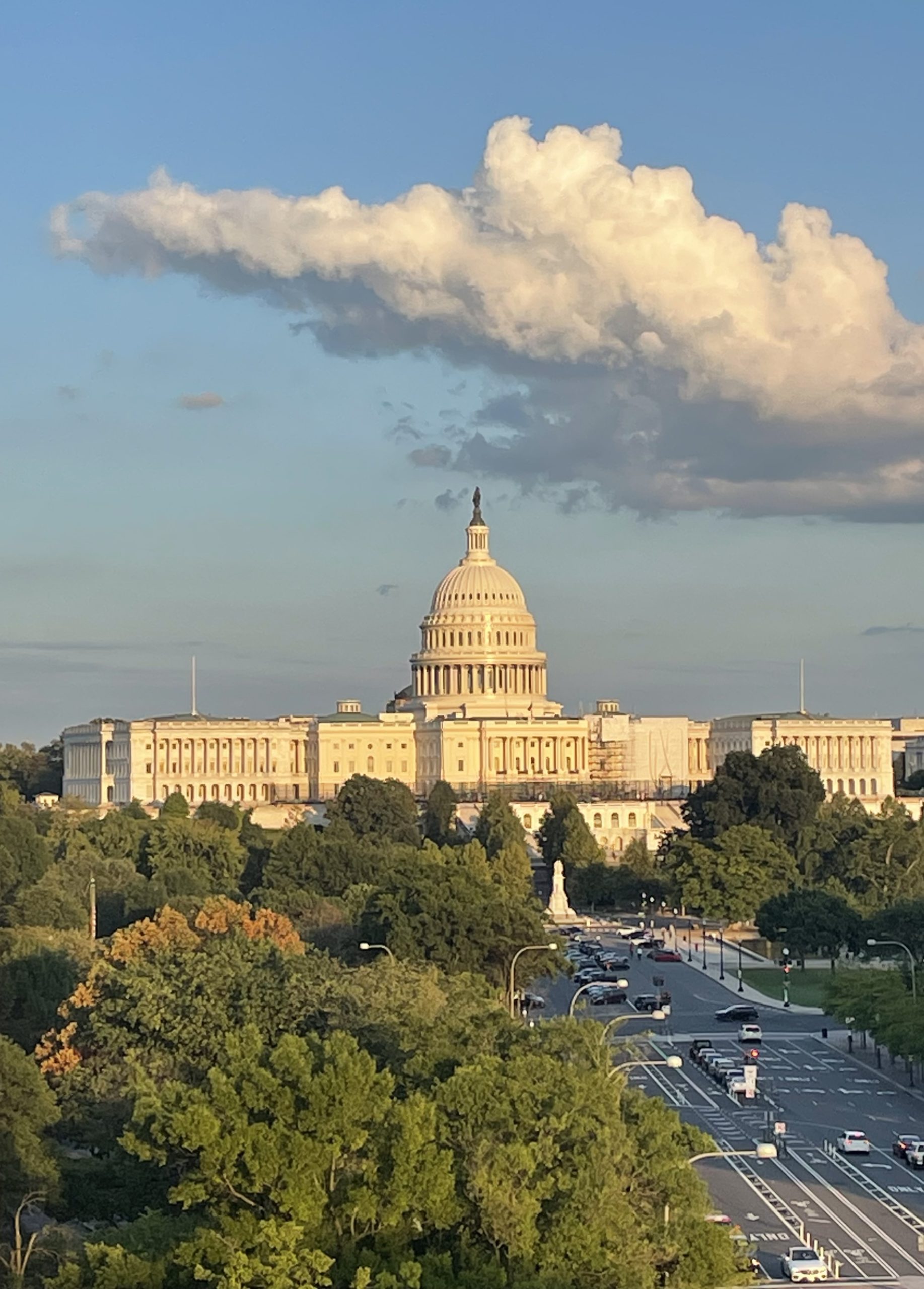Rick Fawn, Professor of International Relations at the University of St Andrews in the UK
If you need four reasons to think about Canada and the US presidential elections for global reasons, here they are.
The first point – the enduring and world importance of US-Canada relations – has five points.
A) what is this election about? The White House.
Let’s remind ourselves of how it got that name. Som contest bits of the history but “Whit House” comes from the “War of 1812”, when in 1814 (and that is not a typo) British-Canadian forces burnt the “Executive Mansion.” The repeated coats of white paint needed to hide the burn marks eventually lent its name.
B) that small historical footnote leads immediately to hard substance: the US and Canada have had since that war an extremely peaceable relationship, including the world’s and longest undefended border.
C) That relationship is also by volume by far the world’s largest bilateral trade arrangement: mor than US$ 3 billion … a day. What happens to that relationship tells the world much.
D) The United States wants use of Canada’s vast natural resources, like water, oil, wood and agricultural goods (Canada is also industrial – and some of the world’s leading economic integration came in the automotive sector between the US and Canada in the 1960s).
E) most important: all this makes Canada a leading test case of whatever outcomes from November 2024 may bring for the rest of the world.
Before that:
2. Canada in the equation.
After nine years and now with achingly bad opinion polls, is extremely unlikely that either the Canadian Prime Minister Justin Trudeau himself or his Liberal Party will be re-election. It is also almost inconceivable that opposition Conservative leader Pierre Poilievre would lose the next election. Poilievre is often been called the “Trump of Canada”; that is probably inaccurate, especially since JD Vance’s better performance in the vice presidential debate showed that generally he can hold ground and use populist phrases in a more effective way.
Populist Poilievre is more similar to Vance; and a Trump-Vance presidency at least rhetorically can get on well him. But the US-Canada economic relationship will be a first, big and easy target for American-centred interests.
And a Poilievre government may look to be antagonistic towards a more politically-liberal Harris-Walz presidency. This is a case where, oddly, a US presidency that much of the world prefers, may have a bumpy time.
3. So what about November 2024? (and let’s hope that the election ends clearly and fully then)?
The Biden administration has had very smooth relations with Canada; There is little question of that on either side of the border. A Harris Presidency could be different.
What view would a Harris presidency mean for Canada generally? In a quaint way, Canadian media have been speculating that Harris is teenage years in Montreal make her affectionate towards Canada. There are no such indications. If anything, we must be reminded that only a handful of senators voted against the USMCA agreement, one of them being … Kamala Harris. She will not necessarily be soft towards Canada, and may find it a relatively easy target to assert US interests. Tim Walz, governor of Minnesota which borders Canada, has said some charming things, but these may not translate into meaningful policy.
And the Trump Administration left a possible time tomb in US-Canadian relations. Let’s remember that occasionally bipartisan support could and did exist then: that was for ending and replacing the North American Free Trade Agreement with the United States Mexica Canada Agreement (USMCA), which came into force in 2020.
The USMCA passed congress with a substantial and bipartisan vote. The Trump administration insisted on a review clause in the USMCA, in 2026. Only a few Senators voted against. One was … Kamala Harris. She may take the opportunity also to review it
That means that this gigantic trade arrangement almost certainly will be reopened, and that will have wide-ranging implications for this continent and to an extent the world.
4. And the global lessons?
Either way, all this makes Canada a testing case for the world. A Harris presidency is clearly preferred, but with a caveat.
A Trump presidency means little good for Canada, even with a Conservative government, and almost certainly a far more fierce line on matters economics. A Harris presidency is clearly preferred, but with a caveat.
Either way, all this makes Canada a testing case for the world. Trump’s few clear mantras of policy is a global tariff of at least 10%. Canada may well face fire more, not least again because of that bass trading relationship and despite the desire for Canadian natural resources. Trump may not understand that it is it is actually Americans who pay these tariffs, not the sending country, but nonetheless impositions of tariffs as well as the opportunity to entirely revisit the USMCA deal could spell economic chaos.
The US-Canada relationship has been one of the most productive and beneficial in human history. To disrupt it, which is a likely outcome either way, but far more with a Trump presidency, will give everyone worldwide an early and telling indication of what US foreign economic policies might feel like from January 2025.
–
Rick Fawn is a Canadian and writing only with a citizen’s view. Long on faculty and a Professor of International Relations at the University of St Andrews in the United Kingdom, he works on international security, comparative regionalism and on countries that are far away from Canada.
Roundtable “From Washington to the World: Regional Perspectives on the U.S. Elections and the Future of Global Affairs”, 9 October 2024, University of Macedonia, Thessaloniki
Watch the full Roundtable here.


